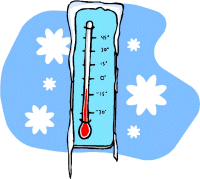Here’s a question from Sandy in Ingersoll, Ontario:
Q: If I’m unable to breastfeed immediately, how long can I keep my expressed breastmilk in the refrigerator? And if I take it in a cooler, how many hours is it safe to use?
A: Good question, Sandy! Here’s a handy guide for the safety of expressed breastmilk:
- Room temperature (less than 25 degrees C) for 6-8 hours
- Refrigerator (<4 degrees C) for 5 days
- Freezer of a 2-door refrigerator (-18 degrees C) for 3-6 months
- Freezer of a deep freezer – chest or upright (-20 degrees C) for 6-12 months
- When travelling, carry expressed breastmilk in cooler bag with ice packs and use within 24 hours
Nancy Lahn RN
Developer of the Cozy Cuddles Nursing Pillow
Originally posted 2015-04-07 16:35:44.
